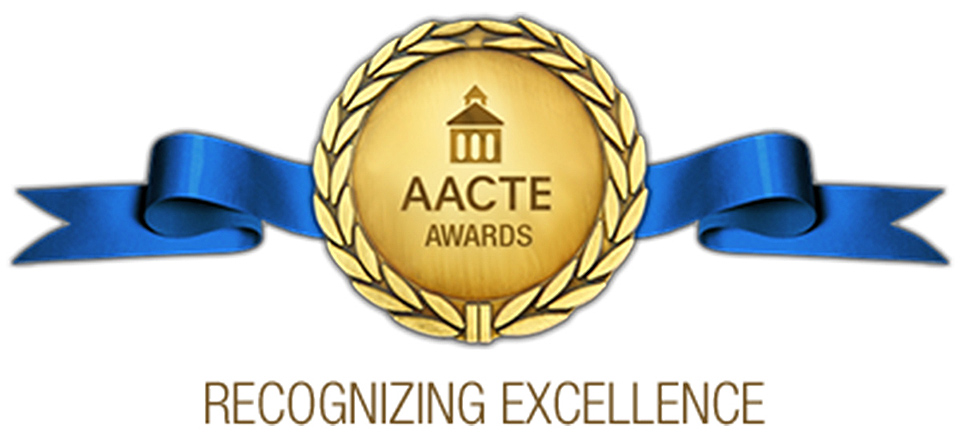17 Aug2020
By Barbara McKenna

Learning Policy Institute’s (LPI) new study, Measuring Student Socioeconomic Status: Toward a Comprehensive Approach, discusses the limitations of the popular measure and examines alternatives for state policymakers who are seeking to accurately count students from low-income families.
“Changing how we measure and address student poverty is more important than ever,” said LPI Senior Researcher Peter Cookson, who authored the study. “A shift away from the [federal Free and Reduced-Price Lunch] FRPL [program] measure was already long overdue and taking place in some states. This takes on deeper urgency now as learning for a generation of students has been upheaved by the COVID-19 pandemic. Accurately measuring family incomes is necessary if policymakers are to allocate school resources that meet the educational needs of students.”
13 Aug2020
By Linda Minor

The deadline for the AACTE 2021 Outstanding Dissertation Award is quickly approaching. Have you or someone you know recently completed a prize-worthy doctoral dissertation related to educator preparation? If so, applications are being accepted through our online submission system until August 21.
This award recognizes excellence in doctoral dissertation research (or its equivalent) that contributes to the knowledge base of educator preparation or of teaching and learning with implications for educator preparation. Overseen by AACTE’s Committee on Research and Dissemination, this award includes a $1,000 cash prize, as well as special recognition at AACTE’s 73rd Annual Meeting in Seattle, WA, February 26 – 28, 2021.
11 Aug2020
By Robert Floden

The Michigan State University (MSU) College of Education has served as editorial home of the Journal of Teacher Education (JTE) for almost six years. With the editorship have come benefits, both to the editorial leaders and to our college. To handle the large number of manuscripts that come to JTE each year, we recruited a team, with four faculty co-editors (all at MSU), a half-dozen or so faculty associate editors (some at MSU, some at other institutions), and a part-time staff member as managing editor. We also had a rotating annual appointment of a junior faculty member as assistant editor, and two part-time graduate assistants.
As a part of the editorial team, faculty members contributed to scholarship on teacher education by making decisions and providing guidance to authors, both of which ensured that the publications in JTE were substantial contributions to the field, using high quality scholarship to address important issues. Editorial team members also had opportunities to participate in writing the editorials included in each issues—editorials that were then frequently cited by other scholars.
07 Aug2020
By Ejana Bennett

The Virginia Commonwealth University’s (VCU) School of Education is sponsoring a two-day research and mentorship summit on August 13 and 14 designed for historically underrepresented schools and colleges of education Ph.D. student, as well as M.Ed. students interested in pursuing a Ph.D. The summit will offer resources and professional development to facilitate students’ success as doctoral students who will be positioned for tenure track faculty positions. Students will have opportunities to discuss and better develop their research and scholarship interests and skills, learn strategies for success, and network with other underrepresented minority graduate students and faculty.
Register in advance for the virtual (via Zoom) VCU Fall 2020 Research and Mentorship Summit.
03 Aug2020
By Nathan Jones

This article by Nathan Jones, associate professor of special education at Boston University, is Part 1 of a two-part series.
Questions of health and safety of students and school personnel have dominated summer debates about how to open schools this fall. The collective focus on safety is certainly appropriate, considering concerns voiced by parents and educators. In most all cases, states have asked school districts to prepare for multiple possible scenarios, ranging from fully in-person to fully virtual. To plan well for any of these scenarios would take a tremendous amount of collective will and resources. To plan for all options simultaneously means that schools have simply not had the opportunity to wrestle with the deep teaching and learning challenges in front of them. If we were to wave a magic wand, and all schools were able to operate fully in person with no threat to students or staff this fall, schools would still face an uphill battle to address the learning losses that have been disproportionately felt by critical student sub-populations. Nowhere is this issue clearer than in the education of students with disabilities.
Although formal data are not yet available, we should anticipate that many students with disabilities have regressed considerably since the transition to distance learning. Data from NAEP assessments show that, for the past several years, students with disabilities have lagged behind their peers in reading, writing, and math. These gaps have likely widened further during distance learning, where students with disabilities have likely not received the additional instructional time they need to make progress. In a May 2020 survey conducted by Parents Together, 40% of parents of students with disabilities reported receiving no services at all since the transition to remote learning, and only 20% reported receiving the services they were entitled to.
24 Jul2020
By Aurelia Grayson and Lauren Pescatore
Principals’ leadership is a critical factor in schools’ success, and school leader preparation programs play a key role in facilitating that success. Specific strategies and resources can support the growth of a strong pipeline of principals who are able to lead teaching and learning in today’s schools. AACTE supports the Wallace Foundation’s principal preparation work, which includes research and initiatives such as the Principal Pipeline Initiative and the University Preparation Programs. The following is a an announcement from the Wallace Foundation’s most recent research featuring three reports that examine efforts being taken in large districts across the country to shift the principal supervisor role from a focus on administration to supporting principals as instructional leaders.
The Wallace Foundation released a trio of reports examining the benefits school districts gained from changing the principal supervisor role to focus less on administrative duties and more on supporting principals in improving instruction. Teams of researchers from Vanderbilt University, the University of Utah, Mathematica, and the Council of the Great City Schools collaborated with the foundation to design and administer surveys that show how the supervisor role may be changing in large districts nationwide. The reports build on earlier research suggesting that effective supervision is part of a comprehensive principal pipeline, with aligned parts, that can lead to benefits for student achievement.
10 Jul2020
By Kevin J. Graziano
Current and former members of the AACTE Committee on Innovation and Technology (I&T) were recognized with the International Society for Technology in Education (ISTE) 2020 Journal of Digital Learning in Teacher Education (JDLTE) Outstanding Research Paper Award for their case study research, “TPACK Leadership Diagnostic Tool: Adoption and Implementation by Teacher Education Leaders” (Clausen, Finsness, Borthwick, Graziano, Carpenter, & Herring, 2019). Recipients of the award include: Jon Clausen, Ball State University; Elizabeth Finsness, Minnesota State University, Mankato; Arlene Borthwick, National Louis University; Kevin Graziano, Nevada State College; Jeffrey Carpenter, Elon University; and Mary Herring, University of Northern Iowa. The research award affirms the long-term work and impact of the AACTE I&T Committee.
The case study examined how the Technological Pedagogical and Content Knowledge (TPACK) leadership diagnostic tool was used by teacher education leaders who established and sustained organizational and learning environments for TPACK-based initiatives at three institutions. Participants indicated all components in the tool were relevant for planning and implementing their TPACK initiatives. Participants “used the diagnostic tool to engage with others about their initiatives, to consider how physical spaces and personnel could be repurposed in support of their initiatives, and to think critically about prioritizing competing political, financial, and contextual demands” (Clausen et al., 2019, p. 64).
26 Jun2020
By Blair Mann
Parents and teachers have had to deal with unprecedented challenges during the COVID-19 pandemic, but their demand for data is as strong as ever. The Data Quality Campaign’s (DQC) fifth parent poll and third teacher poll—conducted by The Harris Poll—makes clear that, especially during these uncertain times, parents and teachers value data. DQC’s national polls found that parents overwhelmingly want more information to support student success and teachers want more data on how the COVID-19 crisis has affected student learning—but teachers also want training and resources to use that data effectively. As state leaders pursue efforts to restart school in the fall, state policymakers and school leaders must take action to give parents and teachers the information and resources they need to ensure their students succeed.
“While the pandemic causes uncertainty in and out of schools, we know that parents and teachers want data and need more support to use it to help their students succeed,” said Data Quality Campaign President and CEO Jennifer Bell-Ellwanger. “As state and district leaders prepare for instruction to resume—whether it’s in person, virtual, or a hybrid—they must prioritize getting parents the information they need and ensuring that teachers have both the data they need and the tools to use it. Taking steps toward both of these goals will ensure that those closest to students have the data they need to make decisions that best serve students.”
Parents see the value of data. They want more data to understand the effects of school closures on student learning in their communities and to inform recovery efforts to best meet students’ and families’ evolving needs.
01 Jun2020
By JTE Insider
Check out a recent JTE Insider podcast by the Journal of Teacher Education (JTE) editorial team. This blog is available to the public, and AACTE members have free access to the articles in the JTE online archives—just log in with your AACTE profile.
In this edition of JTE Insider, we are joined by Loraine McKay and Heather Manning from Griffith University (Australia). They are the authors of the article entitled “Do I Belong in the Profession? The Cost of Fitting In As a Preservice Teacher With a Passion for Social Justice” The article is published in the September/October 2019 issue of JTE.
Loraine McKay is a senior lecturer at Griffith University. She teaches into the Bachelor of Education program. She is currently first year coordinator in the Bachelor of Education program and professional experience individual case coordinator. McKay’s research interests align strongly with her passion for teaching. She was a classroom teacher for over 20 years in the primary education sector before leaving teaching to complete her doctoral studies. Her current research centers on developing teacher identity, efficacy, and resilience in preservice teachers. Loraine is particularly interested in preparing teachers to work in inclusive classrooms. She uses collage and photo elicitation to explore the affective dimension of teaching and engagement in learning.
15 May2020
By JTE
The COVID-19 pandemic has made home settings an essential and, in many cases, the only place of formal learning for students. This shift has pulled parents, caretakers, and other family members even closer to the education of young people as they assume the work of schooling that has been substantially reconfigured by both the pandemic and online platforms. However, in faculties of education, homeschooling is often marginalized with limited funded research (Howell, 2013). Additionally, as Kennedy and Archambault (2012) argue, teacher education programs should have been taking a more proactive role in terms of K-12 online learning with a focus not simply on the technology (Ko & Rossen, 2017), but on the unique aspects of the pedagogy associated with this mode of instruction. Teachers may be ill-prepared to deliver online content, and many families are overwhelmed by the shift in the learning environment. The long-term impacts of this shift are unknown. Yet this uncertainty reasserts opportunities to both (1) leverage home and community settings as reservoirs of knowledge deserving greater attention for teachers and teacher educators and (2) consider how educational technology can be used to support pedagogies that are more centered on students’ interests, assets, and needs (Means et al, 2013).
15 May2020
By JTE Insider
Check out a recent JTE Insider blog interview by the Journal of Teacher Education (JTE) editorial team. This blog is available to the public, and AACTE members have free access to the articles in the JTE online archives—just log in with your AACTE profile.
This interview features insights from Rachel Roegman and Joni S. Kolman, co-authors of the JTE article “Cascading, Colliding, and Mediating: How Teacher Preparation and K-12 Education Contexts Influence Mentor Teachers’ Work.” You may read the full article in the January/February 2020 issue of JTE.
Article Abstract: In this conceptual article, we present a theoretical framework designed to illustrate the many contexts and factors that interact and shape the work of mentor teachers. Drawing on the literature on K-12 teaching and on teacher preparation, we argue for greater acknowledgment of the complex work of mentor teachers as they navigate multiple contexts. We conclude by considering how this framework helps us to better understand the work of mentor teachers and by offering suggestions for teacher preparation programs and K-12 schools to better support mentor teachers and best prepare teacher candidates.
15 May2020
By JTE Insider
This interview features insights on the article, “Sense Making and Professional Identity in the Implementation of edTPA,” by Julie Cohen, Ethan Hutt, Rebekah L. Berlin, Hannah M. Mathews, Jillian P. McGraw, and Jessica Gottlieb. The article was published in the January/February 2020 issue of the Journal of Teacher Education.
Article Abstract
edTPA is designed to strengthen teacher professionalization and provide a framework for program redesign. However, using a national assessment to shift the content of local programs is challenging because of their inherent organizational complexity. In this article, we focus on this complexity, using a systems lens to analyze edTPA implementation at a large, public university. Employing a mixed-methods case study design, we survey 250 teacher educators and candidates to understand how they interpret the demands of edTPA and how their varied perspectives impact each other. We interview a stratified, purposive subset of participants to explore mechanisms underlying quantitative findings. We find substantial internal variation in edTPA implementation that translates into differential support for candidates. This variation could not be explained by duration of implementation of edTPA. Varied perspectives may stem from distinct perceptions of teacher educators’ professional roles and the role they see edTPA playing in teacher professionalization.
08 May2020
AACTE Responds to COVID-19
By Owen Wachter

This article originally appeared on the Virginia Commonwealth School of Education website and is reprinted with permission.
Two VCU School of Education faculty members have been awarded COVID-19 rapid research grants by the university to help better understand this new pandemic and to combat it.
Dwayne Ray Cormier, Ph.D., assistant professor in the Department of Foundations of Education and visiting iCubed scholar, and Yaoying Xu, Ph.D., professor in the Department of Counseling and Special Education, received news of their awards in April.
Cormier’s study will explore pandemic preparedness and response within PreK-12 public school systems located within the Greater Richmond area during the COVID-19 global pandemic.
“The study is exploratory and will use sociological and cultural theoretical frameworks together with a concept mapping methodology to analyze data yielded from focus groups across the PreK-12 school systems,” said Cormier.
24 Apr2020
By Linda Minor
 Do you know someone who recently completed a prize-worthy doctoral dissertation related to educator preparation? Applications for AACTE’s 2021 Outstanding Dissertation Award are being accepted in our online submission system now through August 21.
Do you know someone who recently completed a prize-worthy doctoral dissertation related to educator preparation? Applications for AACTE’s 2021 Outstanding Dissertation Award are being accepted in our online submission system now through August 21.
This award recognizes excellence in doctoral dissertation research (or its equivalent) that contributes to the knowledge base of educator preparation or of teaching and learning with implications for educator preparation. Overseen by AACTE’s Committee on Research and Dissemination, this award includes a $1,000 cash prize, as well as special recognition at AACTE’s 73rd Annual Meeting in Seattle, WA, February 26 – 28, 2021.
Individuals receiving a doctorate since January 1, 2019 are eligible to apply for this award. The primary selection criterion is quality of scholarship. The narrative summary file should answer the following questions about the dissertation:
09 Apr2020
By Linda Minor

Applications for the 2021 AACTE awards are now open. For most of the awards, programs and individuals can be either self-nominated or nominated by a third party. To submit your nomination, visit AACTE’s online submission site. Entries for the Outstanding Book Award are due May 15 and entries for the Outstanding Dissertation Award are due August 15. The due date for all other award submissions is October 9.
Winning entries will be decided by the AACTE standing committees and recognized formally at the 2021 Annual Meeting, February 26 – 28, in Seattle, Washington.













 Do you know someone who recently completed a prize-worthy doctoral dissertation related to educator preparation? Applications for AACTE’s 2021
Do you know someone who recently completed a prize-worthy doctoral dissertation related to educator preparation? Applications for AACTE’s 2021 